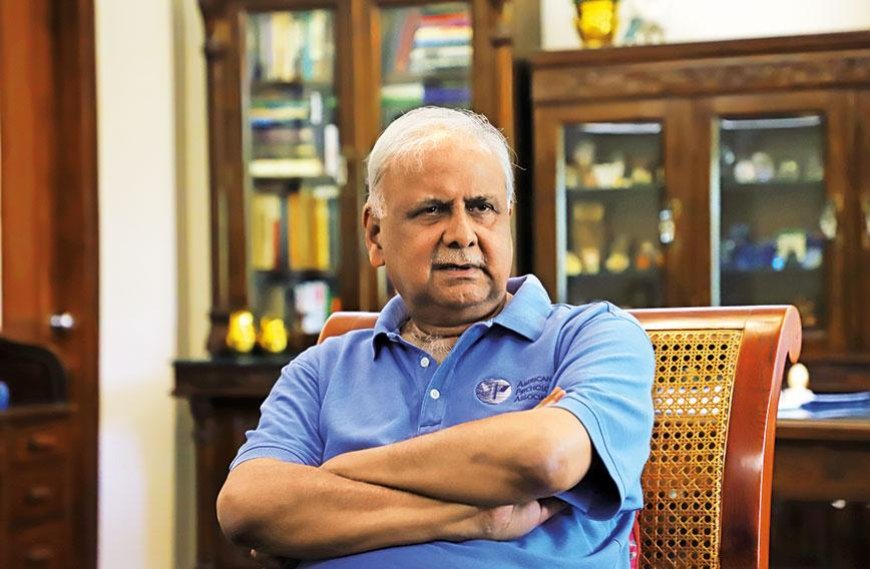Jagdeep Singh Chhokar: Electoral Reform Pioneer Dies, Leaving Transparency Legacy
Jagdeep Singh Chhokar, ADR co-founder and electoral reform pioneer, dies at 81, leaving behind a strong legacy of transparency in democracy.

Introduction
Jagdeep S. Chhokar’s name was one many in Indian civil society associated with fight for electoral integrity, transparency, and clean politics. On 12 September 2025, India lost this veteran campaigner when he passed away after a heart attack. His death has led to reflection on his life’s work—especially via the Association for Democratic Reforms (ADR)—and what his legacy means for democracy in India.
History / Background
-
Jagdeep S. Chhokar was a professor, management-academic, and activist. He was formerly with the Indian Institute of Management, Ahmedabad (IIM-A) where he served as professor and director-in-charge.
-
After retirement, he devoted himself to pushing for election reforms. He was one of the founders of Association for Democratic Reforms (ADR) in 1999.
-
Among his major contributions were legal challenges and successful petitions to force candidates in Assembly and Lok Sabha elections to submit sworn affidavits disclosing criminal cases, assets, liabilities, educational qualification etc. ADR under him also played a part in challenges to the electoral bond scheme.
Why & How He Died
-
Chhokar died on 12 September 2025 in Delhi. He was 81 years old.
-
Reportedly, he had a heart attack early morning around 3:30 am.
-
Prior to this, he had some health issues: he was recovering from a fractured shoulder due to a fall, and during that recovery developed a lung infection. These may have weakened his health condition.
How Family & Colleagues Responded
-
Family donated his body for medical research. This act was reported as reflecting his value of public good.
-
Many prominent figures in academia, civil society, and politics have expressed condolences, calling his death a big loss to electoral reform and democracy.
Key Points of His Legacy
-
Electoral Transparency: Because of his work, it became legally mandatory for election candidates to declare criminal cases, finances, education etc. This increased voter awareness.
-
Legal Wins / Policy Impact: ADR, with Chhokar’s involvement, succeeded in important Supreme Court judgments, like declaring electoral bonds unconstitutional.
-
Academic & Civil Society Bridge: He used his scholarly skills to analyse, critique, and propose reforms; his ability to combine data, legal tools, and activism made ADR a credible voice.
-
Durability: Over about 25 years, he kept working despite changes in politics, often under pressure, with limited resources. His persistence mattered.
Drawbacks / What Remains Unresolved
-
Some of the reforms still face implementation challenges: even when affidavits are required, sometimes disclosures are incomplete or enforcement weak.
-
Electoral bonds being declared unconstitutional is a win—but how fast systemic corruption or hidden money will be curbed remains uncertain.
-
India’s broad political culture, large electorate, regional disparity, and institutional inertia mean that transparency is necessary but not sufficient for cleaner democracy.
Significance & Importance
-
Chhokar’s work shows that civil society can make real change: law, policy, and public awareness.
-
His passing spotlights how fragile reform efforts are; continuity is needed.
-
His legacy encourages young activists to value transparency, to insist on disclosure, and hold political actors accountable.
Positive vs Negative (Outcomes / Impacts)
Positive Aspects:
-
Better information to voters, enabling more informed choices.
-
Pressure on political parties to clean up internal rules, reduce hidden corruption.
-
Establishment of a precedent: public interest litigation, oversight by NGOs and media is feasible.
Negative / Limitations:
-
Reforms do not immediately eradicate corruption or malpractice; often there are delays, loopholes.
-
Institutions may resist or slow-walk reforms.
-
Public awareness may still be patchy; not all voters have equal access to information.
Final Thoughts & Conclusion
Jagdeep S. Chhokar’s death is a turning point—one more loss for the movement towards more transparent, accountable democracy in India. But more than lamenting, this is a moment to assess how far reforms have come, what remains to be done, and how to preserve and build on what he started.
His life teaches us that meaningful change often takes time—legal battle, societal pressure, consistent effort. The frameworks he helped set up (like ADR) must continue, strengthened perhaps with more grassroots reach, ensuring that disclosures and transparency translate into better governance and less corruption.
In conclusion: Indian democracy owes a debt to Chhokar. His passing is sad, but his legacy is powerful. To truly honor that legacy, civil society, institutions, political parties, and citizens must commit to uphold transparency, fight for enforcement, and keep working so that free and fair elections are not just ideals but lived reality.

 Ellofacts
Ellofacts 





